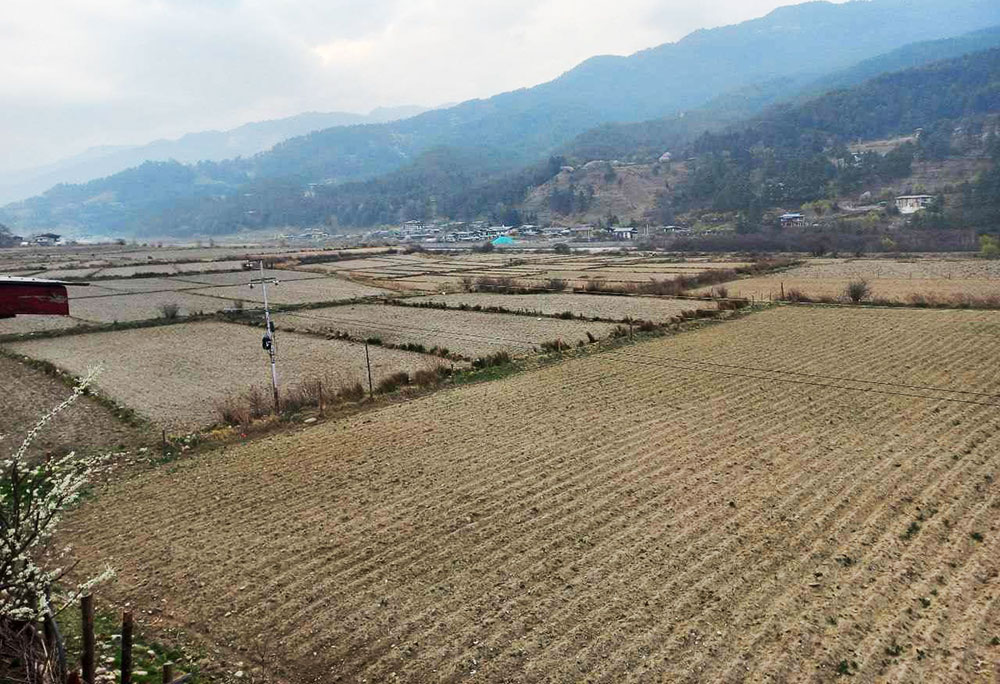Ugyen C Penjor
The rains last week might have disrupted some events of national importance, but farmers are relishing the calm after the storm.
The substantial rainfall on March 19 and 21, and the periodic light showers thereafter, have been a blessing for farmers gearing up for farming activities.
Early spring rain, farmers say, helps them prepare and start work early. While many did not listen to the Indian Prime Minister Narendra Modi’s live address delivered in Hindi, farmers got their early spring showers.
Rainfall data from the National Centre for Hydrology and Meteorology (NCHM) revealed an average rainfall of 2.05 millimetres (mm), 24.83mm, and 18.35mm respectively on March 19, 20 and 21. The average annual rainfall in 2023 was 1794.30mm, with an average of 149.53mm monthly, which comes to 4.98mm daily average rainfall.
Bhutan experiences the summer monsoon from June to September, receiving most of its annual rainfall during this period.
In Remung, Samdrup Jongkhar, farmer Leki Wangdi is busy like his neighbours. He said the entire village began ploughing and sowing maize the day after the rain on March 19.
The rainfall brought a renewed sense of hope to agricultural communities grappling with water scarcity and delayed planting due to extended dry spells, says farmer Leki Wangdi. This unexpected boon from nature rejuvenated parched lands and reignited aspirations for a bountiful harvest season. The entire village, he said, began ploughing and sowing maize the day after the rain on March 19.
In Bumthang, farmers are thanking the stars for the early rains, says Ura Gup, Khandu Wangchuk. “Farmers are able to plant potatoes and start cultivating wheat after the rain. The rain will help the growth of fodder grasses crucial for livestock on which many farmers are dependent.”
Another farmer, Pema Dorji from Chhaskar, Mongar, summed up what farmers in his village are feeling. “The prolonged dry weather hampered the growth of maize and potatoes. However, the rainfall provided a much-needed opportunity to revive their fields,” he said.
In western Bhutan, Parops needed the rain to help rejuvenate their wheat, pea and paddy seedling fields. In Punakha and Wangude, farmers are hopeful of an early harvest of green chillies, cabbages and broccolis, their cash crops. Farmer Kinley of Lobesa, Punakha, said besides showering their vegetable fields, the rain will improve the hydrology in the catchment areas of the numerous streams that irrigate the entire Barp and Toedpisa gewogs “Early rains mean we will have a good year. Hope the following months will not be hot and dry,” he said.


